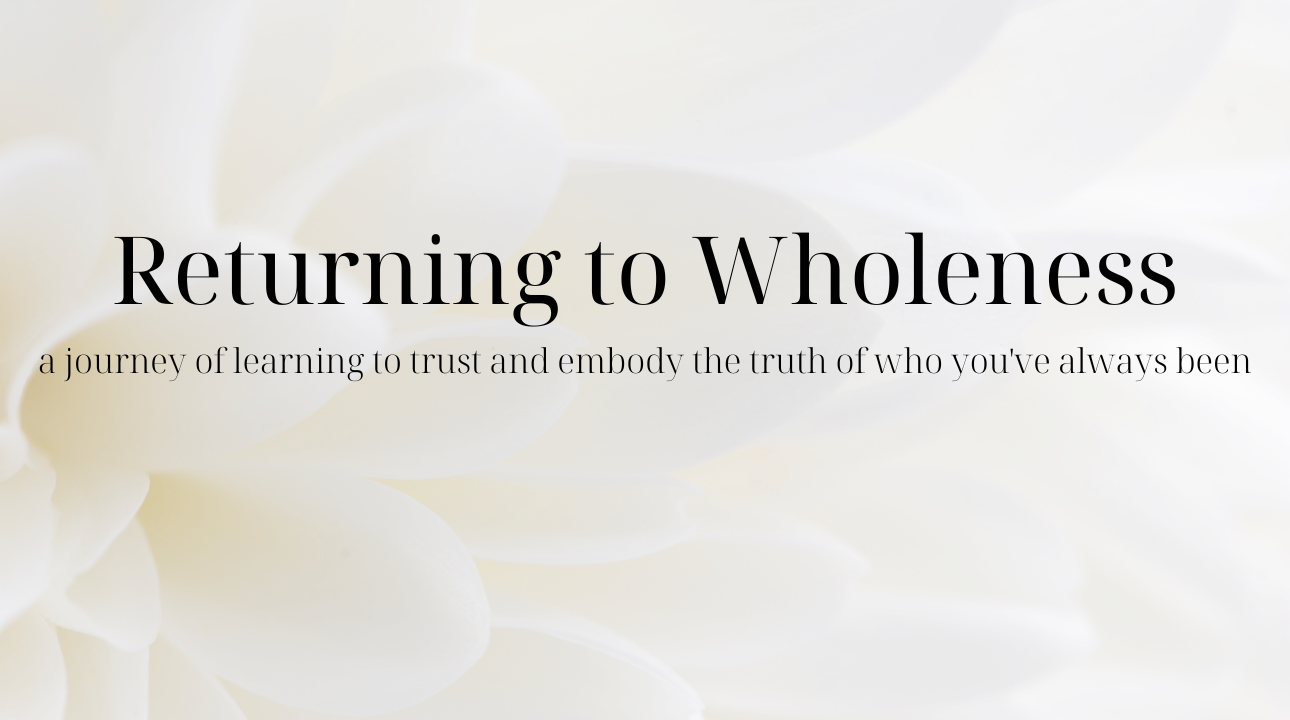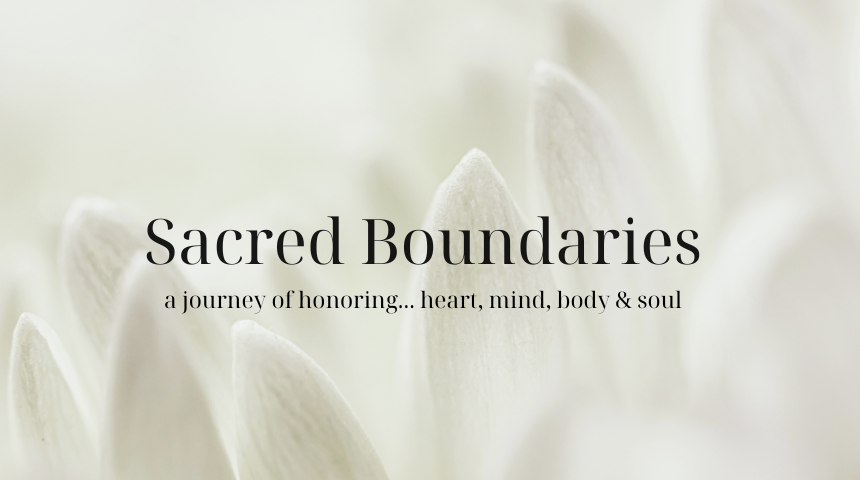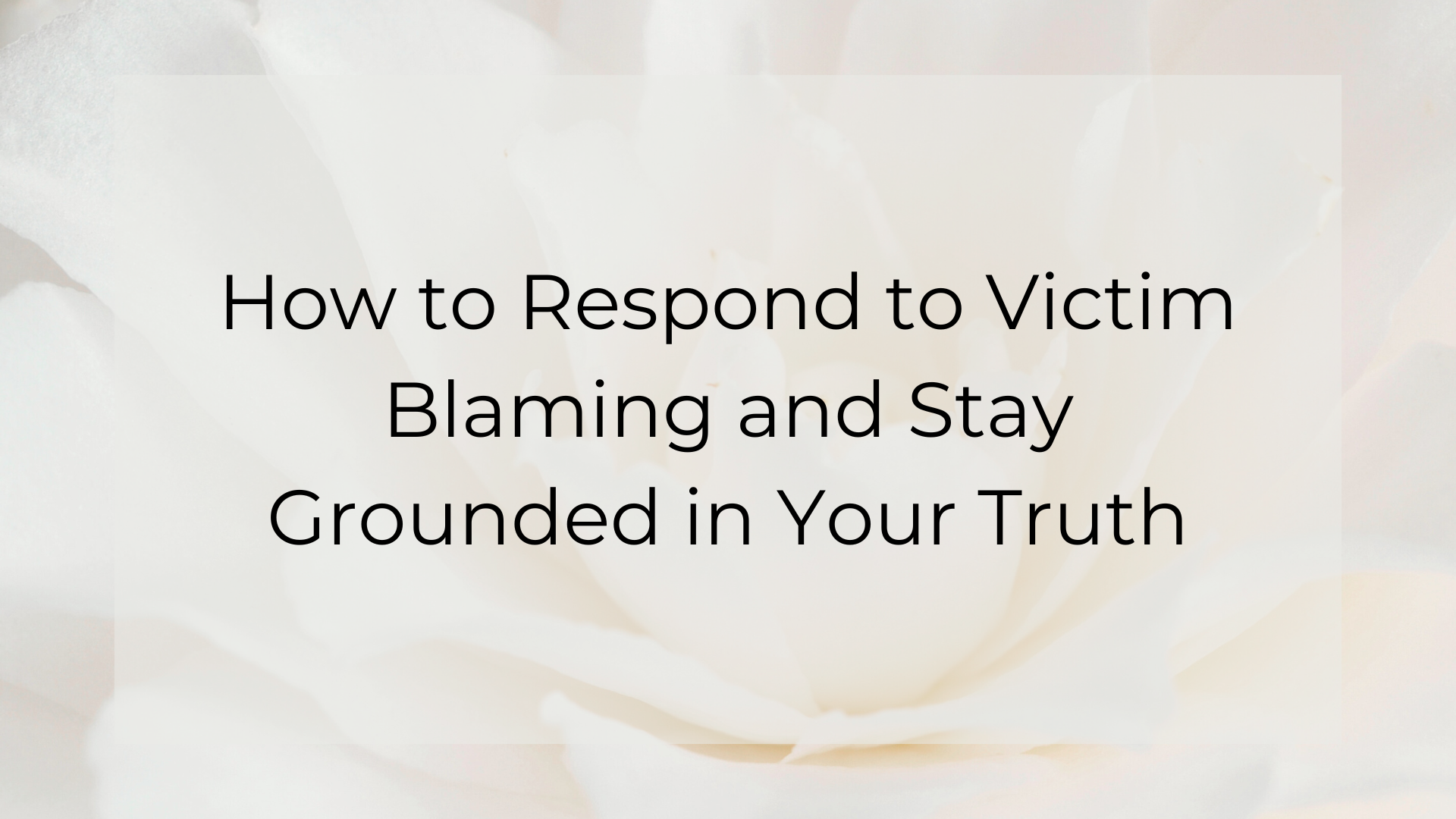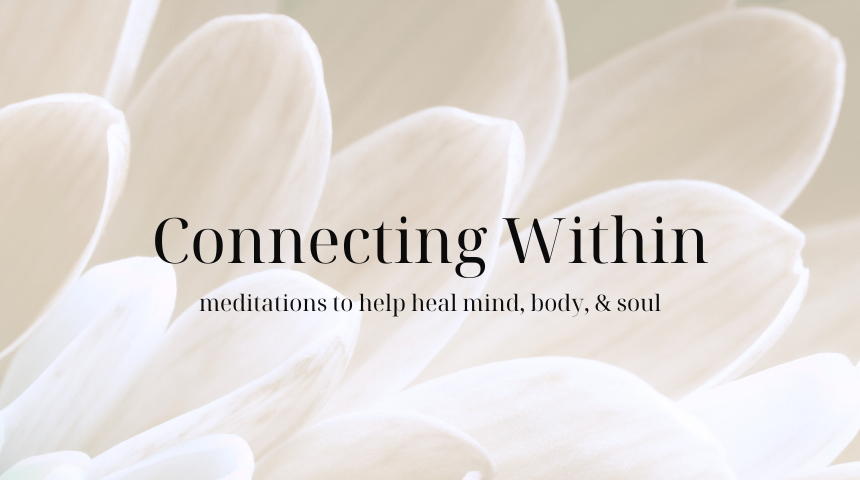Being blamed for your trauma can feel devastating. It’s one of the most significant factors in why survivors don’t tell anyone. Whether it’s an outright question like “Why didn’t you say something?” or a more subtle “Are you sure that’s what happened?” it often undermines your sense of safety, reinforces shame, and can deepen the trauma you’ve already experienced.
Understanding Where Victim Blaming Comes From
So, how can you respond to victim blaming and stay grounded in your truth… and trust that you’re not to blame? First, it’s important to understand that victim blaming often stems from fear or ignorance. It’s a way for others to avoid confronting their own vulnerability. While that never excuses the behavior, recognizing this can help you separate their discomfort and rationalizations from your experience.
Grounded Responses That Protect Your Peace
One powerful response is simply silence. You don’t owe anyone your story nor is it your job to educate every person you come across who invalidates your lived experience. However, if and when you’re feeling confident and rooted in truth, you can also name what their reaction is: “That feels like blaming, and it’s not okay nor is it true.” If you’re in a space where it feels safe and you have the desire to educate, you could say something like, “Actually, many survivors freeze as a biological response. It’s a survival coping mechanism and a trauma response.”
Their Words Reflect Them, Not You
Remember, victim blaming says more about the speaker than it does about you. They may be uncomfortable with the reality of trauma, and it shows up by responding in this way. Your job isn’t to convince them, but to honor your own truth. Healing includes learning when to engage, when to step away, and how to protect your well-being.
The Power of a Survivor Community
It can also be helpful to build community with other survivors. Hearing each other’s stories reminds us that we’re not alone, and it reinforces that we were never to blame.
When Support Isn’t Available
Sometimes, the hardest thing is recognizing that not everyone, sometimes even those closest to us, is capable of being supportive. That’s okay. It’s not a reflection of your worth or the validity of your experience. In these cases, setting boundaries around who you choose to share your story with is important . And, when others criticize someone else for being a “victim,” they’re often in denial of their own struggles. Don’t let their words dictate how and when you choose to share or how you choose to speak about trauma.
Protecting Yourself and Your Story Is a Form of Healing
Healing never requires others acceptance. The only acceptance and understanding you need to heal is your own.
For more on navigating victim blaming, check out this video:

Returning to Wholeness Journal Course
A journey for survivors of childhood trauma of learning to trust and embody the TRUTH of who you’ve always been.
Learn more
Sacred Boundaries
A journey of honoring heart, mind, body & soul. Boundaries are hard. This course will help you recognize what you need and how to move through the obstacles keeping you from implementing it.
Learn more


